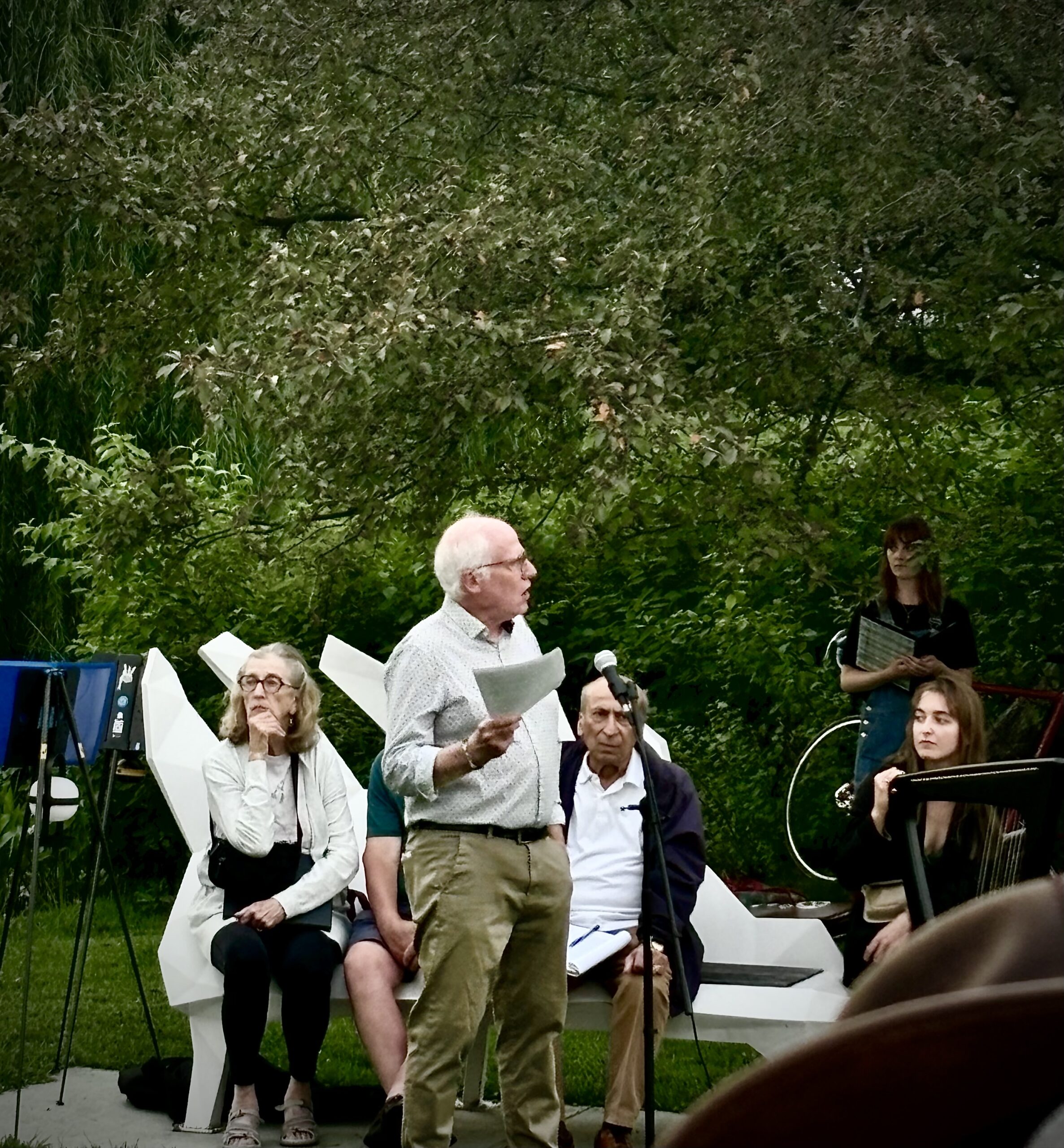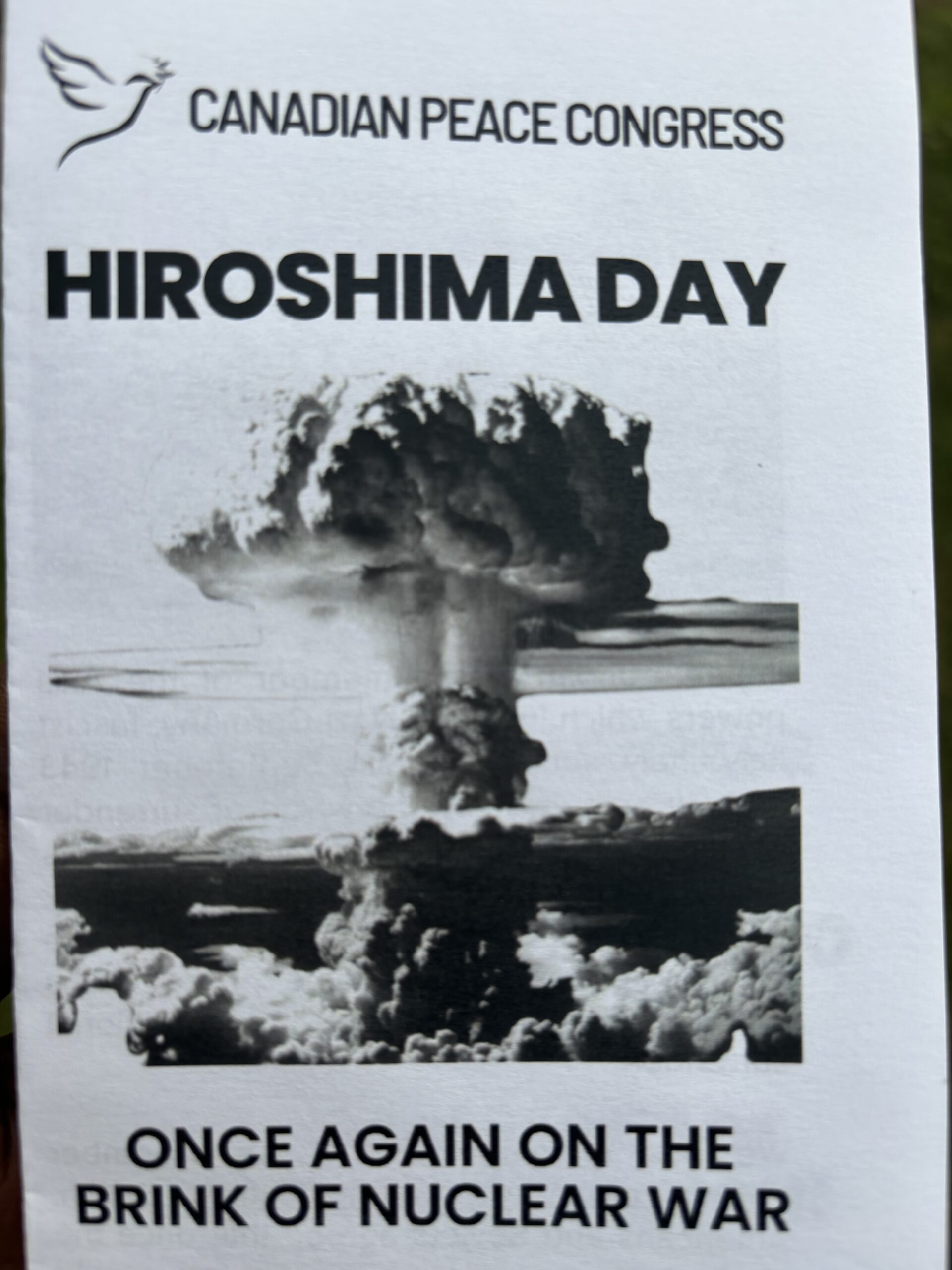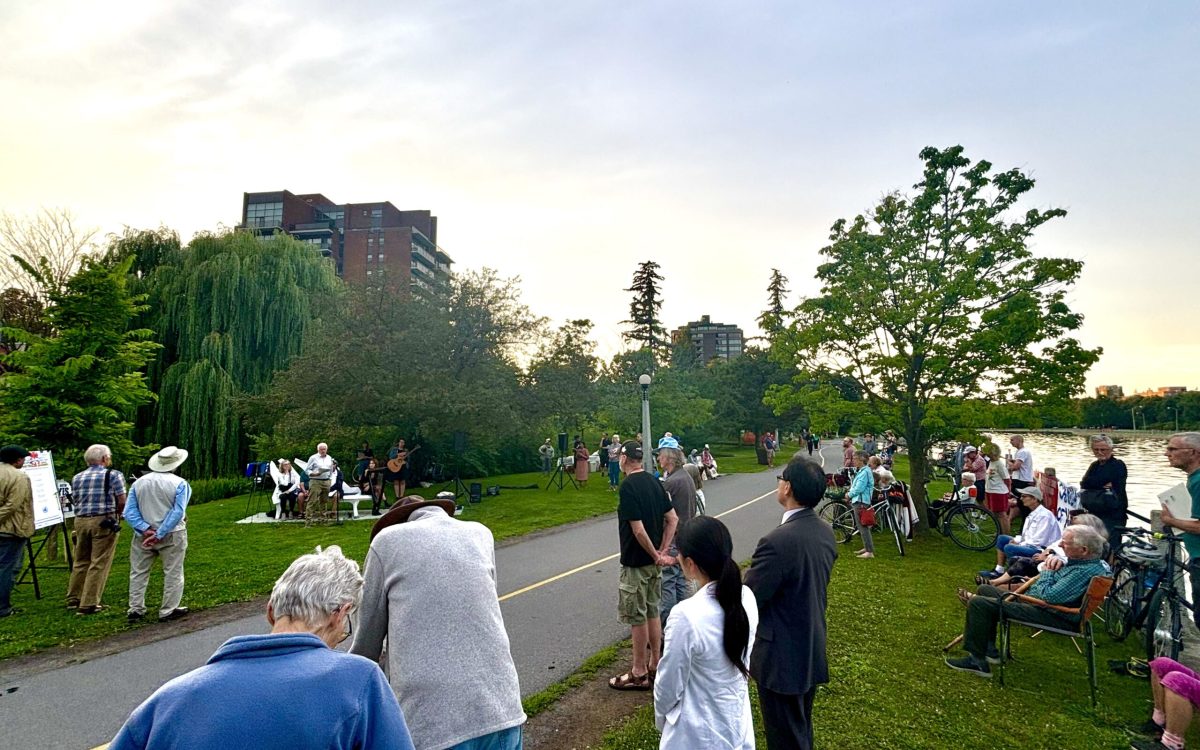Facing 90 seconds to midnight, the world stands on the brink of nuclear catastrophe. Have we truly learned from Hiroshima, or are we repeating history’s darkest moments?
90 Seconds to Midnight: The Ominous Reality of Our Nuclear Dilemma”
In a world teetering on the edge of catastrophe, the nuclear threat looms more prominent than ever before. This is a portrait of the current state of our society as depicted by Prof. Alex Neve during the 79th commemoration of the bombing of Hiroshima and Nagasaki. “The Bulletin of Atomic Scientists’ Doomsday Clock is set at a chilling and foreboding 90 seconds to midnight,” warns Prof. Neve, a Senior Fellow at the University of Ottawa, in a haunting speech at the Hiroshima and Nagasaki Peace Memorial Lantern Ceremony. As Neve reminds us, the world today is precariously close to disaster, driven by the relentless expansion and modernization of nuclear arsenals by superpowers like China, Russia, and the United States. The ongoing war in Ukraine, coupled with a growing reliance on nuclear weapons, only heightens the risk of escalation. “We are standing on the knife edge of nuclear war and nuclear calamity,” Neve cautions, painting a stark picture of our global landscape, where the threat of annihilation is ever-present.
Unlearned Lessons: The Death Toll in Gaza, Bukavu, and Beyond
 Yet, as the world stands on this precipice, we are confronted by a troubling reality: we have not learned the lessons of Hiroshima. The unspeakable horrors of that fateful day in 1945 were supposed to awaken humanity to the perils of war and the devastation of unchecked violence. But have they? Neve’s speech forces us to confront the harsh truth that our collective memory is short, and our actions speak louder than our words. “How can we claim to have learned from Hiroshima” asked Neve with a heavy voice and sorrow and frustration, when the death toll continues to rise in places like Gaza, Bukavu, Haiti, and Ukraine? These conflicts, marked by unimaginable suffering and loss, are a grim reminder that we are failing to protect the very humanity Hiroshima’s memory should have safeguarded.
Yet, as the world stands on this precipice, we are confronted by a troubling reality: we have not learned the lessons of Hiroshima. The unspeakable horrors of that fateful day in 1945 were supposed to awaken humanity to the perils of war and the devastation of unchecked violence. But have they? Neve’s speech forces us to confront the harsh truth that our collective memory is short, and our actions speak louder than our words. “How can we claim to have learned from Hiroshima” asked Neve with a heavy voice and sorrow and frustration, when the death toll continues to rise in places like Gaza, Bukavu, Haiti, and Ukraine? These conflicts, marked by unimaginable suffering and loss, are a grim reminder that we are failing to protect the very humanity Hiroshima’s memory should have safeguarded.
Remembering Hiroshima and Nagasaki: A Call to Conscience
As we gather to remember the unspeakable horrors of Hiroshima and Nagasaki, Neve urged the listeners and bystanders to imagine the unimaginable: “Just imagine if we were not here this evening to remember something that took place nearly 80 years ago but instead were reacting to something horrible that had just occurred.” The thought of such an atrocity occurring today, in the age of social media and instant communication, is enough to send chills down anyone’s spine. Neve vividly describes the nightmare scenario of “brutal images of the death, disfigurement, and total destruction…bringing the names and faces of those who had been immediately incinerated and those terribly maimed” directly to our phones, forcing us to confront the horrific reality of nuclear warfare.
The Treaty on the Prohibition of Nuclear Weapons: A Path Forward
 Despite the grim outlook, there is hope in the form of international law. Neve highlights the Treaty on the Prohibition of Nuclear Weapons (TPNW) as a crucial step toward a world free of nuclear weapons. Adopted in 2017 and entering into force in 2021, the TPNW now has the support of 70 nations, though many, including Canada, have yet to sign on. “The preamble to the TPNW itself makes it clear that the absolute end, dismantling, and abolition of nuclear weapons for all time must remain our ultimate goal,” Neve emphasizes, calling for “principled leadership” and a “clear demonstration of conviction” from the Canadian government.
Despite the grim outlook, there is hope in the form of international law. Neve highlights the Treaty on the Prohibition of Nuclear Weapons (TPNW) as a crucial step toward a world free of nuclear weapons. Adopted in 2017 and entering into force in 2021, the TPNW now has the support of 70 nations, though many, including Canada, have yet to sign on. “The preamble to the TPNW itself makes it clear that the absolute end, dismantling, and abolition of nuclear weapons for all time must remain our ultimate goal,” Neve emphasizes, calling for “principled leadership” and a “clear demonstration of conviction” from the Canadian government.
A Future Without Nuclear Weapons: The Only Possible Path
Neve’s message is clear: 79 years after the horrors of Hiroshima and Nagasaki, the only way to truly honour the victims is to ensure that such a tragedy never happens again. “We must all raise our voices, send emails, arrange meetings with our MPs, and make it clear to our Minister of Foreign Affairs and our PM that…there is only one possible future, and that is a future which prohibits and abolishes nuclear weapons, full stop.” The time to act is now before the clock strikes midnight, and the world is plunged into a nightmare from which there may be no return.
The chilling reminder that “the catastrophic consequences of nuclear weapons cannot be adequately addressed” and that they are “abhorrent to the principles of humanity and the dictates of public conscience” should spur us all into action. As Neve powerfully concludes, “That is how we best remember, but more importantly, how we best honour the people of Hiroshima and Nagasaki.”
-
Facebook
-
Twitter
-
Linkedin
-
Whatsapp






